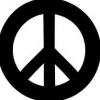"War Crimes Trials in Bangladesh Create Opening for Islamist Militants"
Bangladesh, the world’s fourth largest Muslim country, has recently experienced an intense cycle of massive protest rallies marked by violent confrontations between moderate secularists and Islamic radical forces. The spark for these religious and political confrontations has been the ongoing trials for war-crimes committed by Islamist groups during and just after 1971’s Operation Searchlight, the Pakistani campaign that preceded the Bangladesh Liberation War.



